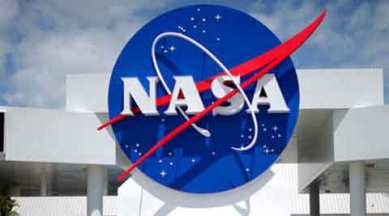NASA tests effect of zero-gravity on astronauts’ brains
NASA to start studying the effect of zero gravity on brains of astronauts who carry out spaceflight

The US space agency is examining changes in both brain structure and function in astronauts on board the International Space Station (ISS) to determine how long it takes for them to recover after returning from space.
Previous research and first-hand reports suggest that humans have a harder time controlling physical movement and completing mental tasks in microgravity.
monthly limit of free stories.
with an Express account.
Astronauts have experienced problems with balance and perceptual illusions – feeling as if, for example, they are switching back and forth between right-side-up and upside down.
NASA researchers are using both behavioural assessments and brain imaging.
Astronauts complete timed obstacle courses and tests of their spatial memory, or the ability to mentally picture and manipulate a three-dimensional shape, before and after spaceflight.
The spatial memory test also is performed aboard the ISS, along with sensory motor adaptation tests and computerised exercises requiring them to move and think simultaneously.
Astronauts are tested shortly after arriving aboard the station, mid-way through and near the end of a six-month flight.
“We are looking at the volume of different structures in the brain and whether they change in size or shape during spaceflight,” said principal investigator Rachael D Seidler, director of University of Michigan’s neuromotor behaviour laboratory in a statement.
[related-post]
Functional MRIs involve astronauts completing a task during the imaging which will show researchers which parts of the brain they rely on to do so.
According to Seidler, both the behavioural assessment and brain imaging are important to help identify the relationship between physical changes in the brain and those in behaviour.
“On Earth, your vestibular – or balance – system tells you how your head moves relative to gravity but in space, the gravity reference is gone,” Seidler said.
“That causes these perceptual illusions, as well as difficulty coordinating movement of the eyes and head,” he informed.
These difficulties could have serious consequences for astronauts, especially when changing between gravitational environments, such as landing on Mars.
In those cases, astronauts will need to be able to perform tasks such as using tools and driving a rover, and they must be capable of escape in a landing emergency.
Identifying the physical mechanisms behind changes in behaviour and how much time it takes to adapt will help researchers determine how best to help space explorers compensate.
The results could also reveal whether astronauts return to “normal” post-flight because the brain changes back, or if the brain instead learns to compensate for the changes that happened in space.